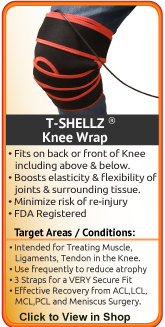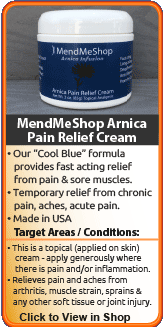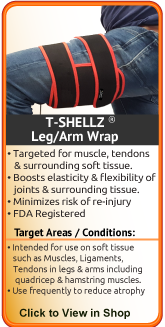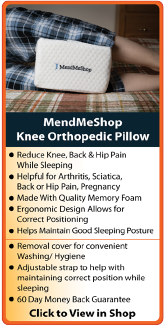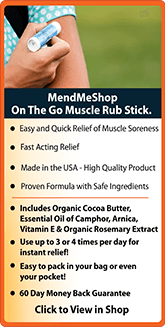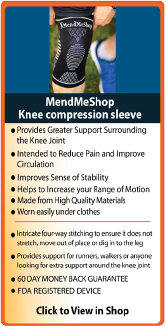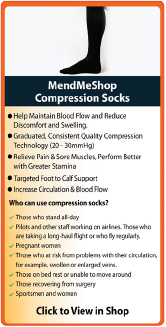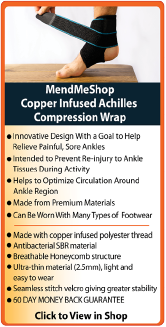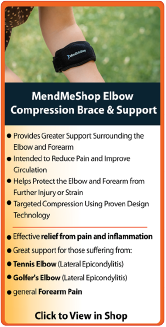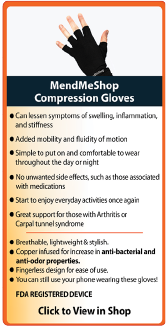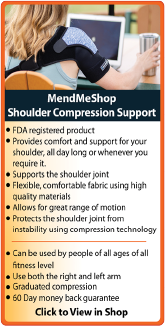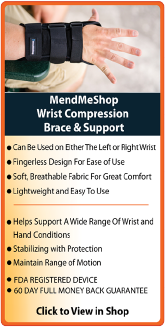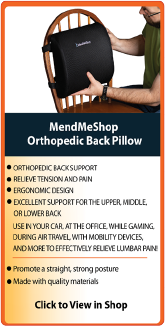Does Torn Meniscus Require Surgery?
"Surgeons should strive not to operate in most cases, but to protect, repair or reconstruct, in order to prevent early development of osteoarthritis by restoring the native structure, function, and biomechanics of the meniscus."1
Surgery is a Last Resort
Not every meniscus injury requires surgery.
It's generally understood by doctors and surgeons that surgery will introduce more scar tissue into your joint. This added scar tissue will be problematic, requiring PT and often significant treatment post-surgery. If not dealt with properly, you could end up in worse condition than before the surgery! This is why surgery is only performed as a last resort.
If You Haven't Done So Yet, Get a Proper Diagnosis
Some meniscus tears may be considered as Surgically Necessary (SN) and will require surgery. If your knee is infected, which can be very serious, you will most likely require antibiotic medications as well as surgery. This is why it is important to get to a physician and find out what is really going on - this is known as getting a proper diagnosis. Getting a proper diagnosis would also determine if your pain or symptoms are a side effect from another condition or disease (ie. arthritis, lyme disease). This is less common but nonetheless, very serious. So yes, it is important to get a proper diagnosis.
Once your medical professional has diagnosed your tear, he/she will recommend the most effective treatment for your meniscus injury. The following will determine whether conservative or surgical treatment options are more appropriate:
- Your activity level
- Your age
- The severity of your tear
- The location of your tear
- The type of tear
- Your symptoms
- Any other associated knee injuries
Meniscal tears are graded on 3 levels; 1 being the least severe and 3 being the most. Grade 1 and 2 tears may not even be apparent during an arthroscopic exam and can usually be repaired without surgery. Grade 3 tears generally require surgery. Surgical options are used more often for larger, complex or displaced tears.
At one time, surgeons removed injured menisci - believing they served no purpose, however doctors now know the importance of the meniscus to the knee joint mechanics and function. Removing part of the meniscus should be avoided if possible, especially if it will weaken the surrounding tissue and reduce the load absorption of your weight. This will substantially increase the risk of further degeneration in the joint (ie. osteoarthritis).
If the meniscus is at risk of further damage or the knee cannot flex or extend properly, surgery many be required remove the flap; this helps prevent more tearing while restoring joint function. It is beneficial to try to heal a meniscus tear prior to surgery to avoid it if possible or to minimize the amount of meniscus that needs to be repaired or trimmed.
If an anterior cruciate ligament (ACL) injury occurs when the medial meniscus is torn, surgery may be required to repair the ACL. Once again, the severity of the tear along with the patient's age and activity level are all factors considered when determining treatment. If conservative treatments are unable to treat your tear completely, your physician may recommend a surgical option. A comprehensive arthroscopic exam is usually performed prior to surgery to determine the location and nature of the tear and whether or not it can be repaired. You are generally a candidate for surgery if you have injured your meniscus and you:
- Experience symptoms that interfere with your daily living after 2 - 3 months (knee catching or locking, very stiff and painful, major instability).
- Have a larger, complex or displaced tear.
- Have major instability in your knee (often due to a combined meniscus/ACL injury)
- Are a high-level athlete
The Good News
Most minor meniscus tears are not Surgically Necessary, and will heal on their own. This is why most doctors, physicians and orthopaedic specialists will recommend conservative treatment options for non-SN injuries before considering surgery.
Some of the most effective conservative treatment methods to avoid surgery are:
- Rest - This is important for initial healing to reduce pain, swelling and inflammation in the early stage of your meniscus injury. Too much rest can also be harmful as joint immobility can actually cause stiffening, overcompensation and atrophy (wasting away of soft tissue). This is why rest should be used when reducing initial pain and swelling, but should not be considered for more long-term conservative treatment.
- Avoid Activities that Caused Your Injury - While resting your problematic joint, it's important to avoid activities that may have caused your injury in the first place and this definitely includes pretty much any type of sport or repetitive movements that might be undertaken when working. Continuing on with regular activities will not only make your injury worse, but trying to 'work around' your injury will eventually give rise to over-compensation injuries in other areas of your body.
- Use a Cold Compress or Ice Pack - Cold is very effective at reducing pain and inflammation - use at the onset of the injury and during flareups.
- Use Circulation Boost (via a TShellz Wrap®) - You can use your own blood flow to maximize your rehabilitation, maintain healthy blood flow to knee, maintain flexible soft tissue (and as such, decrease recovery time). Promoting blood flow to the injury will help to minimize the growth of scar tissue, increase flexibility and help prevent atrophy.
- PT - Surgery is usually the last resort. This means doctors or surgeons typically won't perform a surgery until they feel that their patient has put effort into treating their injury with conservative treatment methods. This includes 4 to 6 months of PT. If you haven't experienced any improvement in your condition during that time then surgery may be considered. Aggressive PT approaches will focus on forced or manual manipulation of your joint - this means your physical therapists will be trying to move your frozen joint past the point of comfort as they strive to increase range of motion and prevent further atrophy. This can be painful and end up making your injury worse if not done correctly. (reference: 1)
- Stretching - Stretching your joint at the clinic and at home will help you to regain your range of motion much faster than not stretching at all. Stretching in many ways is key maintaining good Range of Motion (ROM) in your joint, and stretching can be made much easier with use of a TShellz Wrap® before to warm up soft tissue, and a Cold Compress or Ice Pack treatment after to prevent any return of swelling and inflammation.
What Happens When You Are Not Using Conservative Treatment Methods (as Outlined Above)
Meniscus tears are injuries that cannot really be ignored. If you choose to ignore the injury, then this means you will likely find that you will be losing range of motion and favoring your other knee (overcompensation). This means it will inevitably get worse.
Here is what to expect:
- Since the tissue is probably inflamed and the joint is not active, lack of proper blood flow will drop your healing rate to a crawl.
- Continually straining the soft tissue (just by doing daily tasks such as walking, cooking or driving) worsens the injury and will introduce more scar tissue.
- Increased scar tissue buildup will tighten the soft tissue in your joint, decreasing your already limited flexibility (reduced range of motion). After a week or more of limited flexibility in the knee, you may start to experience atrophy - a wasting away of soft tissue that inevitably weakens your knee.
Trying to use your knee once it has not been used for a week or more can easily introduce more scar tissue, cause pain, freeze you up again and happen again and again... As you can see this is a cycle that just gets worse and worse, eventually becoming a chronic knee injury (long term). This is the cycle you need to stop or you will probably wind up having surgery once your injury becomes chronic. This is why you need to treat your injury with the TShellz Wrap® every single day, at least twice per day.
What Are the Two Biggest "Gotchas" When Treating Meniscus Damage Using
Conservative Treatment Methods?
The Absence of Pain Does Not Mean Your Injury is Gone
After most of our clients use a Cold Compress or Ice Pack for a couple days, pain will typically drop very significantly. This where most people wrongly associate the pain with the injury, whereas in truth, almost all of the pain really came from the inflammation and swelling. Once the inflammation is gone, do not assume you are fully healed.
Time Is Not Your Friend
So you have used a Cold Compress or Ice Pack on your knee and most of the pain is gone, but it's been a couple of months and the injury keeps flaring up. If this is you, then you probably know why this is happening now... the injury was never full healed. To really heal a meniscus injury, you need to get to a doctor. If the tear is small and in the vascular potion of the meniscus, conservative treatment methods might be all you need. If so, you really need to rest until it is healed, and you don't need me to tell you this is a pain in the butt! This is why the TShellz Wrap® is such an important tool, as it introduces the concept of blood flow inducing heat. The body's response to this heat is to increase blood flow in the treatment area, maximizing the ability of the body to repair itself (the body heals tissue via blood flow). With this accelerated blood flow, you increase your odds of getting back on your feet more quickly, thus avoiding the re-injury cycle.
When the swelling has gone down and the pain has reduced, this is the perfect time to use the TShellz Wrap®. A treatment with a TShellz Wrap® will substantially increase blood-flow to the treatment area - an increased blood flow helps maximize your body's rate of healing. We also highly recommend that our clients treat themselves with the T•Shellz first thing in the morning before getting out of bed. We feel it is important, as heat is known to increase elasticity and flexibility in soft tissue; when getting out of bed, your soft tissue is likely at its least flexible point throughout the day. Not only will this treatment combat atrophy, it will also decrease the chance of re-straining these ligaments, muscles and tendons at their most vulnerable time - after a long period of inactivity.
Why Your Knee Won't Heal
If our body is designed to heal our own injuries, why does it take so long to heal?
When we have an injured meniscus, ligament, muscle, tendon or bursa, this means the tissue is damaged. Your body responds to this damage with healing right away. During this healing process the injured tissue spasms. These spasms are contractions, and are meant to hold the tissue still to prevent any further injury. Swelling and inflammation is your body's way of: - Creating localized pain to tell you something is wrong there and to stop moving it, and
- Sending blood to the area to start healing. Healing at this point will also expand the blood vessels in the injured tissue - they enlarge and swell causing you pain. This pain is a signal for you to lessen activity that would put more undue stress on your tendon.
However, there is a significant problem with swelling and inflammation with respect to healing rate. Once soft tissue is inflamed, blood-flow is restricted. The body heals itself by sending nutrients through the blood to the injured tissue, and if the injured tissue is swollen, the blood-flow is greatly decreased.
Decreased blood-flow to injured tissue, prevents the damaged tissue from healing as fast as it would if the area wasn't swollen.
The other issue is that swelling is also very painful. With many conditions, once you get rid of the inflammation, a lot of the pain will disappear as well.
Once the Pain is Gone, We Think Our Soft Tissue Injury is Healed.
So we start using it more and more for common tasks, and then "boom" we get a sharp pain and then it starts all over. When this happens, the injury was never fully healed - and now it is worse! More scar tissue grows in the new tissue micro-tears and well, lets talk about scar tissue.
Scar Tissue - We Need It For Kick-Starting Soft Tissue Repair
But After That It is Nasty Stuff
Cartilage, ligaments and other soft tissue are all meant to be durable and flexible, ready to work and move extreme forces in everyday activities. When I say extreme force, I mean try to imagine the amount of force that your meniscus handles, even when you are just walking, let alone running or jumping. It is no surprise that sometimes a meniscus will tear and from this point your knee movement might be significantly restricted and you may feel significant pain.
Scar tissue grows in damaged tissue when it tries to heal; little tiny band-aids that overlap each other to bind tiny tissue tears together. With this added scar tissue, muscles & tendons & ligaments become rigid, less flexible and unable to handle the forces that it once could. From this, there is added pressure on the tendons and muscles, which can easily become inflamed once there is other inflamed soft tissue in the vicinity. If you're suffering with scar tissue now you may feel the effects with stiffness, tightness, weakness and pain in your knee joint.
On-going issues with scar tissue can result in soft tissue tears and increase chances of strain to nearby tendons or ligaments (as they are now handling higher forces due to overcompensation).
Scar tissue is one of the MAIN reasons why a chronic injury has not healed and your Range of Motion (ROM) is reduced from what it once was.
Scar tissue will form fast to deal with a soft tissue injury, and this scar tissue will also attach to everything in the area, including the surrounding healthy tissue as well. This can result in a fusing together of soft tissue that shouldn't be fused together, causing extreme pain when you try to move your joint - it is literally ripping scar tissue. This is why PT is often painful - the therapist stretches the joint, forcing the scar tissue bonds to break so you can regain your range of motion.
Scar tissue is a significant problem for tendon injury sufferers - causing your injury to become chronic, and taking months or even YEARS to completely heal!
You can help reduce the nasty effects of scar tissue and minimize further injury to your knee by adding heat to the area. Treating yourself with the TShellz Wrap® is the easiest and most effective way to accelerate your recovery at home and deal with stubborn scar tissue.
When applied before activity or work, the TShellz Wrap® will also relax and lengthen your soft tissue to help improve your range of motion and prevent atrophy (tissue wasting & shortening) of your injured joint.
Overall, continued treatment with a TShellz Wrap will maintain good health in your soft tissue and significantly reduce your risk of re-injury.
The TShellz Wrap® & The Meniscus
Have you seen what happens when you add water to a flower wilted from drought? In essence, a soft tissue injury is much like a "wilted" flower; your body wants to heal its injury, but needs lots of nutrients to do it. Blood brings new life to your tissue by delivering healing nutrients and oxygen that are vital for their growth and survival. In addition, the blood carries away toxins and waste cleaning the area and healing it faster. Without a good supply of blood, your tissues simply won't heal properly.
Using a TShellz Wrap® will not expose you to the risk of causing further harm to soft tissue like you can when using rigorous exercise. The TShellz Wrap® accomplishes the goal of enhanced blood flow without the need for intensive exercise and as such reduces your risk of re-injury.
When to use a TShellz Wrap®:
- Once the swelling is gone (usually after applying cold compression to the injury over 24 to 72 hr period).
- BEFORE getting out of bed in the morning. BEFORE going to bed at night.
- BEFORE exercise, workouts or activity of any kind to increase joint elasticity (tendons,ligaments,muscles) and decrease the chance of re-injury.
- AFTER surgery (once the skin wound has healed over) to increase post-surgery healing rate and minimize scar tissue growth at the surgery location.
- Anytime BEFORE you feel you might undertake activity that will put significant strain on the injury area.
Click Here to Check Product Price
If you have questions, call our office at 1-866-237-9608 (toll free continental US).
Minimize Your Chance of Surgery with these Effective Conservative Treatment Options
If your doctor thinks you might be able to avoid surgery by using conservative treatments, you can join our many customers who have had great success treating themselves with the powerful TShellz Wraps® that we offer through AidMyMeniscus.
Our online shop accepts Visa & Mastercard as well as a Paypal Payment option.
We also encourage your to Call Our Office at 1-866-237-9608 (toll free continental NA) where we can answer any questions you have and/or take your order via phone.
Soft Tissue Injuries are common and can happen to anyone. Right now there are thousands of doctors and physical therapists dealing with patients that require a solution to treat their injury fast and heal it (where possible). If you want to be pro-active about properly addressing your meniscal tear by using optimal home based conservative treatments, then you need to use AidMyMeniscus's system utilizing TShellz Wraps® and accessory products.
If Surgery is Required
Ok, well the good news is that our TShellz Wraps® should be considered as part of an effective conservative treatment protocol for post-surgery recovery. Learn more about how to get started with recovery after surgery here.
A Word of Caution
There are always some risks associated with any surgery, which include but are not limited to possible infection, allergic reaction to medications, blood clots, and damage to surrounding nerves and blood vessels. However, modern techniques have significantly minimized the occurrence of these problems.
If you feel any clicking in your knee during exercise or weight bearing activities following surgery, let your surgeon know immediately.
Although surgery is often successful at repairing any damage and/or relieving pain, it does not necessarily return strength to your knee.
There are occasions where surgery is not necessary, or not worth the potential for further damage. As with all surgical procedures, it is usually recommended that you get a second opinion before making a decision.
The Next Step Is Up To You!
Living with pain is never easy as it affects your entire lifestyle. Living with pain during or after an intensive surgery and lengthy rehabilitation period can be even harder! What is more important than taking your best shot at trying to heal your knee before signing up for surgery?
Doctors and Surgeons are always improving the technologies used in surgery, and results from surgery now are much more positive than they were in the past. However, all surgeries introduce scar tissue, and recovery from some surgeries can be disappointing. If you do wind up getting surgery, know that rehabilitation at-home while attending regular PT or doctor appointments is vital for your overall recovery. It is especially vital to critical joints that consistently handle extreme forces (body weight). Consistent exercise and conservative treatment on a daily basis during your rehabilitation while working with your doctor, surgeon or physical therapist is key - and this is why you should seriously talk with your PT about maximizing your recovery by using the TShellz Wrap® at home once you are approved for home exercises.
AidMyMeniscus stands out in this regard as our goal is to help you keep your body healthy for the long-term in a cost effective manner. This might mean a reduction in chronic soft tissue damage without needing surgery. If surgery cannot be avoided, then our tools are also intended to help during your recovery from surgery.
We strongly believe that we can help you, and we have thousands of happy clients to back this claim. You are welcome to try our products for a 60 day period.. If you are committed to following the treatments outlined in the product instructions we are very confident that our TShellz Wraps will aid you immensely. If you do not receive the benefits that countless of our other customers have experienced after 6 weeks - call us. We will send you return instructions and provide you with a full product refund once receiving the product back.

Our online shop accepts Visa & Mastercard as well as a Paypal Payment option.
We also encourage your to Call Our Office at 1-866-237-9608 (toll free continental NA) where we can answer any questions you have and/or take your order via phone.
Product specialists are available 9:00 am to 5:00 pm Eastern Standard Time Monday to Friday. If any question or concern arises, call us or simply send us an email at any time (we check our emails constantly all throughout the day and night.. even on holidays!). We will respond as soon as possible. North America Toll Free 1-866-237-9608
Outside North America +1-705-532-1671Learn More About Meniscus Injuries & TreatmentsI want to learn more about Post-Surgery Recovery I want to learn all about Types, Patterns, Shapes & Severity of Meniscus Tears I want to learn more about TShellz Wrap® Circulatory Boost I want to learn more about Ice & Heat: Which Is Better For Treatment? I want to learn more about Meniscus Treatments I want to learn more about different types of Meniscus Surgery
FREE SHIPPING ON ALL PRODUCTS CURRENTLY ENABLED
During your recovery, you will probably have to modify and/or eliminate any activities that cause pain or discomfort at the location of your soft tissue injury until the pain and inflammation settle. The more diligent you are with your treatment and rehabilitation, the faster you will see successful results!
References:
1."EFORT Open Reviews". 2019. EFORT Open Reviews.. website.
| 


